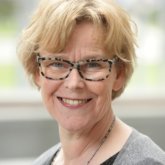Postdoc position in Dutch ZonMW/EU Horizon projects on identifying digital physiological and psychological markers during activities of daily lives
At the University of Twente—Biomedical Signals and Systems (BSS) group, one full-time Postdoc research position is offered within the Dutch ZonMW IMPROve project and the EU-Horizon HeathlyW8 project to focus on the identification of digital physiological and psychological markers for intrinsic capacity in older adults during their activities of daily living.
The World Health Organization defines healthy ageing as the process of developing and maintaining the functional ability that enables well-being in old age. This functional ability depends on an individual’s intrinsic capacity - comprising their physical and mental health, and the environment in which they live. Timely monitoring of individuals’ intrinsic capacity in their daily life physical activities will provide insight into the interaction between a person’s intrinsic capacity and the environment. Knowledge about this interaction is the key to supporting personalised prevention and care strategies. The development of an accurate and interpretable monitoring system is urgently needed given the boost in the ageing population with unhealthy lifestyles and the high prevalence of noncommunicable diseases, e.g., obesity, diabetes, and cardiovascular diseases.
This post-doctoral position will focus on the analysis of multimodal human physiological signals to extract physiological and psychological variables from older adults during their activities of daily living. The physiological signals include, for instance, inertial measurement unit (IMU), electrocardiography (ECG), photoplethysmogram (PPG), electrodermal activity (EDA), and respiratory signals. Specifically, the post-doctoral researcher will apply and develop technologies including multimodal and physiological-model-based signal analysis, statistical analysis, human physiological modelling, and machine learning modelling. To obtain relevant data for the above described research activities, the post-doctoral candidate will also design a medical research experimental protocol for 30 older adults with high or low intrinsic capacity levels, apply for the protocol’s ethical approval. Please check this website for more information about the relevant ethical regulations and approval process in the Netherlands), and take main responsibilities for performing the approved experiment at our real-life simulated environment: the eHealth House.
The prospective post-doctoral researcher is expected to perform high-quality and internationally visible research with publications in high-rank peer-reviewed journals. The candidate will be appointed to BSS-Ying Wang’s Research Lab and mainly (co-)supervised by dr. Ying Wang and prof. Miriam Vollenbroek-Hutten at the Biomedical Signals and Systems (BSS) group at the University of Twente and closely collaborate with the other partners within the IMPROve project and the HeathlyW8 project. The candidate will be appointed for a period of 24 months. During this period, the candidate will be offered the opportunity to broaden their knowledge and network by joining the Dutch and European consortium meetings and by participating in (inter-)national conferences and workshops.
Information and application
Are you interested in this position? Please send your application via the 'Apply now' button below before January 13, 2025, and include:
* A motivation letter (maximum 1.5-page A4), emphasizing your specific interest for this position, qualifications, skills and motivations to apply for this position.
* A full Curriculum Vitae, including your education background, a short summary of your previous research and teaching activities, contact information of at least two references that may be consulted.
* A list of publications.
For more information regarding this position, you are welcome to contact Dr. Ying Wang via the following email address: ying.wang@utwente.nl.
The first round of interviews is expected to take place around the end of January 2025.
About the department
Biomedical Signals and Systems BSS is a multidisciplinary group based in Electrical Engineering, focussing on finding solutions for medical challenges via signal and system analysis. Advanced (ambulatory) sensor technology combined with our broad knowledge of the human body as a dynamic system enables (eHealth) technology to improve the prevention, diagnosis and treatment of sensory, motor and internal dysfunction in clinical and home/self-care settings. Our research helps to improve the quality of life of the elderly, people with chronic diseases and rehabilitation patients. The research mission of the Biomedical Signals and Systems (BSS) group is to:
* enable improved diagnosis and treatment of patients with motor, sensory and cardiopulmonary dysfunction in clinical and home/self-care setting,
* by developing knowledge, methods and tools for identification, control and modulation of neural, muscular and cardiopulmonary systems, cognition and behaviour,
* using smart sensing, novel data analysis techniques and selective actuation technology or personalized eHealth technologies that enable prevention, timely diagnostics, and personalised coaching & treatment for chronic care and rehabilitation.
About the organisation
The faculty of Electrical Engineering, Mathematics and Computer Science (EEMCS) uses mathematics, electronics and computer technology to contribute to the development of Information and Communication Technology (ICT). With ICT present in almost every device and product we use nowadays, we embrace our role as contributors to a broad range of societal activities and as pioneers of tomorrow's digital society. As part of a people-first tech university that aims to shape society, individuals and connections, our faculty works together intensively with industrial partners and researchers in the Netherlands and abroad, and conducts extensive research for external commissioning parties and funders. Our research has a high profile both in the Netherlands and internationally. It has been accommodated in three multidisciplinary UT research institutes: Mesa+ Institute, TechMed Centre and Digital Society Institute.





